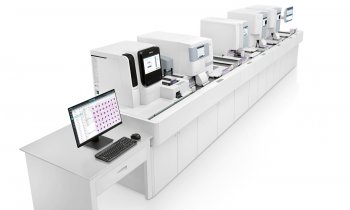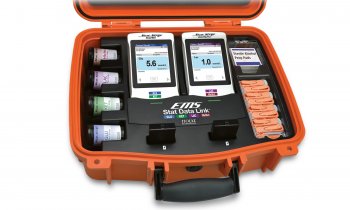A national electronic healthcare system
Britain launches massive and ambitious IT project
The National Health Service launches one of the world's biggest IT projects this month (April) aiming to connect British healthcare providers in 28 strategic health trusts via NHSnet. In the future, the plan “Delivering 21st Century IT Support for the NHS”:
National Strategic Programme’ (www.doh.gov.uk/ipu) aims to implement:
A broadband network NHS trusts, primary care trusts and specific health authorities will have a 2Mbps fixed link connection to the network, and all general practitioners [GPs] will receive a 256Kbps connection, thus forging links between the healthcare providers. Completion: 2004.
Electronic prescriptions Three pilot trials, in partnerships with the private sector, were completed by the end of 2002. Trials involving GPs and chemists will continue.
Electronic appointments Presently the patient’s GP contacts a hospital and the patient receives an appointment by letter. This system will enable the patient and GP, in his/her office, to choose a specialist and arrange a mutually convenient booking, and if necessary change appointments quickly.
Electronic health records The first national, electronic patient record is expected by the end of 2005, and to be a complete system 2008, evolving alongside technology advances and from experiences in pilot projects and for the users. The result should provide easier mobility in healthcare provision for patients - who will be issued with an individual NHS number. 17 communities are taking part in the NHS Information Authority’s Electronic Health Record Development Implementation Programme (ERDIP), in projects looking at development of standards and practices for a ‘virtual’ electronic patient record.
Ultimately the aim is to enable access to records about an individual patient’s diagnosis/treatment that are stored in various data bases - hospitals, GP surgeries and other healthcare facilities - where they have been examined. Given present technological limitations, initially this may relate only to regional databases.
Finance Healthcare spending on this IT system will increase, in four stages, to £1.4 billion (up 40%) this year, £1.7 in 2004, and £2.3 billion in 2005, aiming for a comprehensive system in 2008. As this massive IT project proceeds, it will be controlled by a new ‘Gateway’ review programme, devised to scrutinise, at five stages, the progress and economics of any large-scale public project.
‘Ruthless standardisation’ The Department of Health’s blueprint promises ‘ruthless standardisation’ and to this end Richard Granger, aged 37, is heading the project at a salary of c. £255,000 per annum. His task is not easy, in part due to the obduracy of some doctors, who don’t want the complication of computerisation, and others who suspect the system will be used to assess performance
30.04.2003










